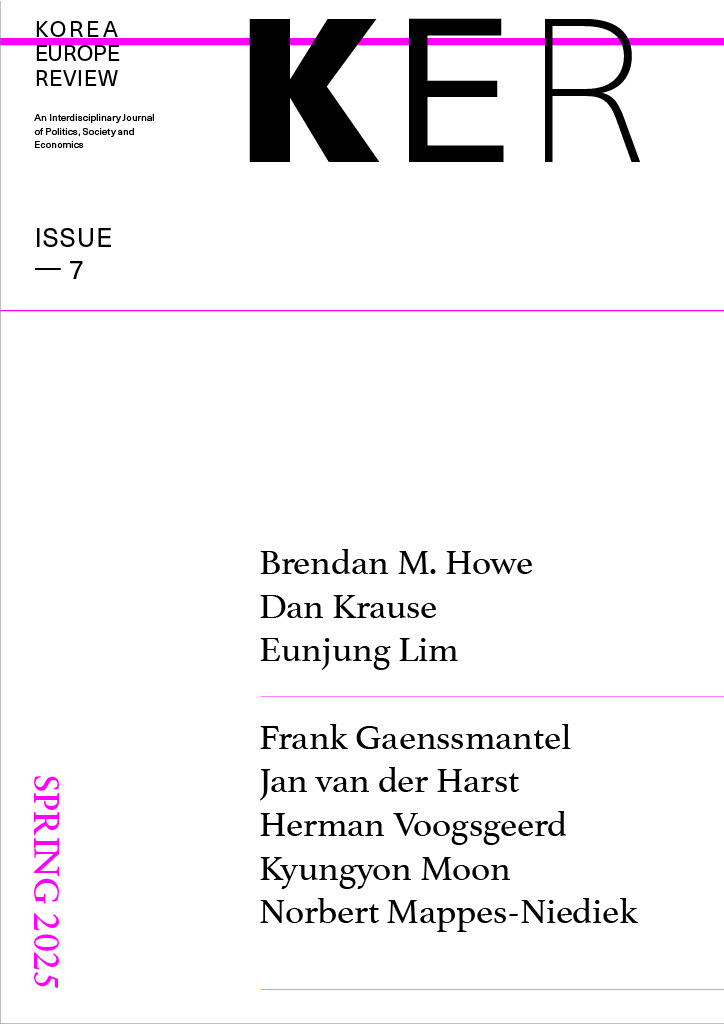Ordering East Asia, Discovering South Korea
Interpreting the European Union’s Engagement with South Korea in the Context of its Representations of East Asia
DOI:
https://doi.org/10.48770/ker.2025.no7.53Keywords:
European Union, discursive spatial ordering, economic cooperation, East Asia, Republic of Korea (ROK)Abstract
While much has been published on the negotiations and development of EU-South Korea relations over the past decade and a half, the sudden upgrading of bilateral relations in the late 2000s has hardly been explored. This article contributes to closing this gap by proposing an interpretation of the EU’s approach to South Korea against the backdrop of its engagement with East Asia at large. To do so, it develops a framework of discursive spatial ordering, which is then used to analyse the discourse on East Asia in documents of the European Commission and the Council of the EU since the end of the Cold War. The focus is on the extent to which the EU identifies with Easy Asia, or differentiates between itself and this region, whether and how it differentiates amongst players within East Asia, and to what extent it perceives hierarchical asymmetries in these relationships. The article argues that the comparatively low level of priority for South Korea in the EU’s engagement with East Asia up to the mid-2000s can be related to a general perception in Brussels that all of East Asia displayed important deficiencies in terms of economic governance and to a focus on Japan and especially China as main players in the region. In the second half of the 2000s then South Korea quickly moved centre-stage in EU policy towards East Asia for several reasons: firstly, as it became clear that China would not follow EU expectations in terms of economic and political reforms, both South Korea and Japan gained in weight due to their status as “like-minded countries;” secondly South Korea was identified as a commercial partner that could help the EU to outperform major competitors (in particular the US), while Japan was seen as an important competitor itself; lastly, and outside the economic sphere, the EU was also interested in showing its new (postenlargement) weight in international affairs by contributing to the management and mitigation of the security challenges emanating from North Korea.
References

Downloads
Published
Issue
Section
License
Copyright (c) 2025 Frank Gaenssmantel

This work is licensed under a Creative Commons Attribution 4.0 International License.


